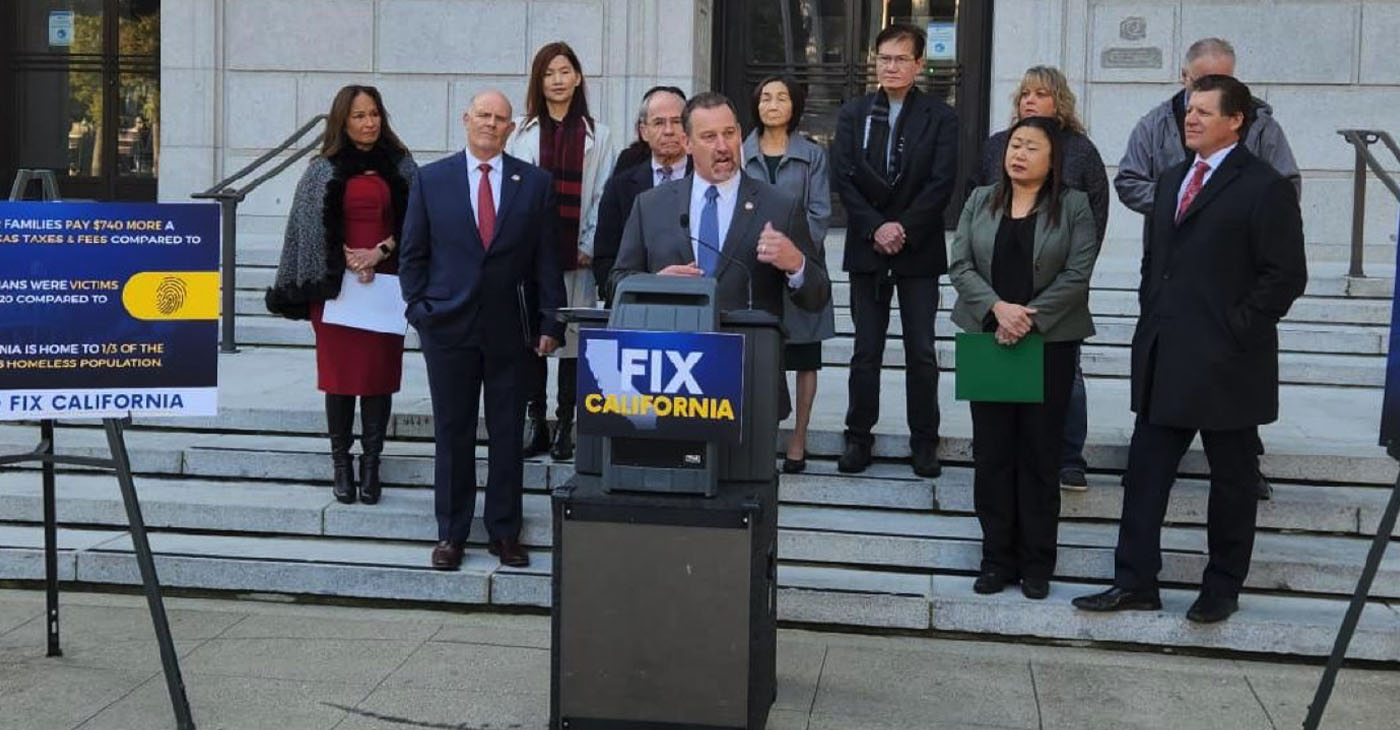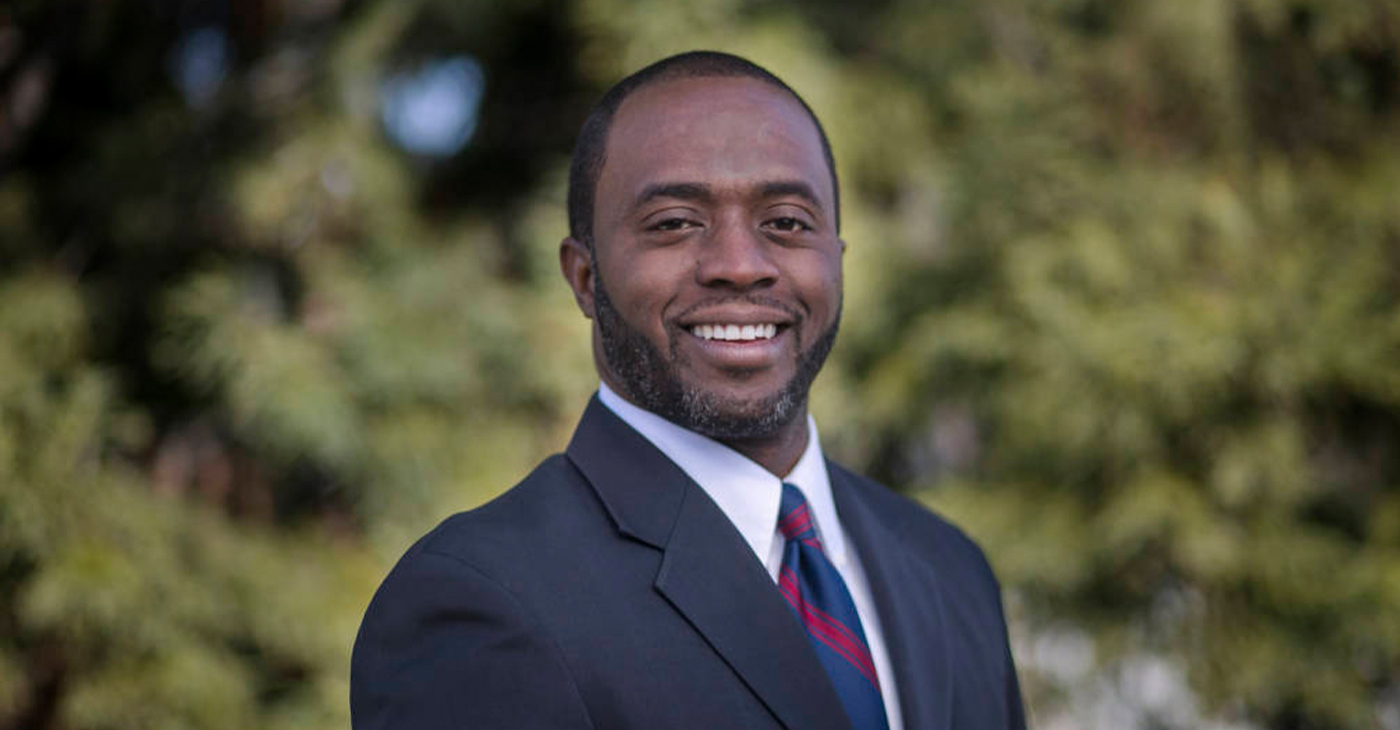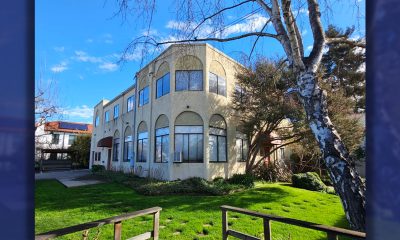California Black Media
Republican Lawmakers Announce Agenda to ‘Fix California’
“Crime is soaring, homelessness is out of control, the cost of living is unsustainable, schools are failing students, our water infrastructure is out-dated and our communities are susceptible to wildfires,” said Sen. Brian W. Jones (R-Encinitas), Senate minority leader and host of the Jan. 25 event.

By Solomon O. Smith
California Black Media
California Senate Republicans recently held a rally at the State Capitol announcing their legislative goals to “fix California” for the next year.
Slamming proposals and policies their Democratic colleagues and Gov. Gavin Newsom are championing, the GOP State Senators presented several bills of their own. They also called for more oversight — and in some cases, a total rehaul — of state programs addressing crime, homelessness, education, climate and more.
“Crime is soaring, homelessness is out of control, the cost of living is unsustainable, schools are failing students, our water infrastructure is out-dated and our communities are susceptible to wildfires,” said Sen. Brian W. Jones (R-Encinitas), Senate minority leader and host of the Jan. 25 event.
“As the loyal opposition, I am proud to stand here with my colleagues and commit to fixing this state,” Jones added.
The Republican lawmakers presented their agenda for 2023 a few weeks after Sen. Janet Nguyen (R-Huntington Beach) delivered the Republican response to Newsom’s 2023-24 California budget proposal. More than once, Nguyen, in her speech, pushed for oversights and audits and rebuked Democrats’ handling of the state government.
Sen. Kelly Seyarto (R-Murriato) slammed high crime rates and human trafficking under Democrat leadership. Democrats hold a super majority, he said, pointing out the 32-to-8 ration of Democrats to Republicans in the State Senate.
He blamed progressive policies for rising crime in the state, citing Los Angeles County District Attorney George Gascon, who met heavy opposition for his attempts at bail and police reforms.
Seyarto called for the creation of a task force to examine the fentanyl epidemic, which he links to high crime rates. Opioids have been a leading cause of drug overdoses across the country, according to death rates reported by the National Institute of Health.
“California’s approach to public safety needs to change, for our families, for the survivors and for our community,” said Seyarto. “In order to do that we need to fix California and pass these effective policies.”
The Republicans’ condemnations of California’s social and economic health go against assessments Democratic leaders are making.
During his budget announcement earlier in January, Newsom said his proposals are putting the state on “solid economic footing while continuing to invest in Californians — including transformative funding to deliver on universal preschool, expand healthcare access to all and protect our communities.”
Senate President pro Tempore Toni G. Atkins (D-San Diego) said Newsom’s decision not to cut critical resources is making a difference.
“We’re seeing that in action as local communities, emergency responders and state agencies do all they can to help us get through these severe winter storms armed with the resources and tools made possible in past budgets by lawmakers determined to prepare our state for what may come,” she said. “While no one can predict the future, we are entering this year from a position of strength and readiness.”
Sen. Steven Bradford (D-Inglewood), one of two Black state senators (the other is Sen. Lola Smallwood Cuevas (D-Ladera Heights), said Newsom’s budget moves the state “in the right direction,” while acknowledging that, facing a $24 million shortfall, lawmakers will have a challenge to set priorities.
Water woes and wildfire fears were also on the Republicans’ agenda.
Sen. Brian Dahle (R-Bieber), said there are several major dams and the Sites Reservoirs in his district, which is the largest Senatorial district in square miles in the state. Dahle blames Democrats for the ongoing drought, calling them out for not making more of an effort to complete the reservoir, which was funded in 2017.
The Sites Project Authority issued a report, that concluded had the facility been completed, it could have stored a total 382,000 acre-feet of water for the state. Dahle criticized the lack of action on water storage and plans to streamline the process while holding Democrats “feet to the fire.”
Sen. Roger Niello (R-Fair Oaks) discussed the Republican proposal for homelessness, called the ACT Plan. Almost 28% of all unhoused people in the United States (about 170,000 people) in 2021 lived in California — although the state’s population accounts for about 12% of the U.S. population. These numbers are growing according to data from the Senate Housing Committee.
Niello said, California has “thrown” $20 billion on the homelessness problem, but it remains unsolved. “Common sense measures,” he said, created by California Senate Republicans are needed to tackle the issue. Niello said he introduced Senate Bill (SB) 232 to make it easier to treat mental health among the unhoused. But Niello also wants to know where monies earmarked for homelessness in the past have gone.
“No more fake checks, no more failing programs,” warned Niello, “Californians deserve better for their money.”
Sen. Rosilicie Ochoa Bogh (R-Yucaipa) used “choice” when referring to school policies, a word which has become synonymous with Charter schools. Ochoa Bogh said recent state test score data reveals that 53% of students don’t meet the English standard; 67% failed math; and 71% scored below the passing grade in science.
Although California student test scores have fallen over the last few years, education officials say the lower scores are the result of COVID shutdowns, and many of those numbers are slowly improving, according to a report from the California Department of Education.
The report shows that significant improvements have been made and that all scores across the country are lower, but California has done better on average than most of the nation.
Black students, however, have been the lowest performing sub-group in the state (only above students with disabilities) even before the pandemic began.
“Quality education is one of the most important services that government provides to our children,” Ochoa Bogh said. “Unfortunately, California students continue to fall further behind.”
California Black Media
Cinco De Mayo: Five Interesting Facts You Should Know About the Popular Mexican American Holiday
To explore the historical significance of Cinco De Mayo, we step back to the origins of the commemoration, share how some Mexican American Californians regard it and trace how it has morphed into the celebrations we see today.

By Edward Henderson, California Black Media
To explore the historical significance of Cinco De Mayo, we step back to the origins of the commemoration, share how some Mexican American Californians regard it and trace how it has morphed into the celebrations we see today.
Celebrations in the United States began in 1862 in Columbia, California, a small town located in the foothills of the Sierra Nevada in Tolumne County, according to that town’s website.
Today, millions of Americans celebrate Cinco De Mayo annually with 120 official celebrations organized across the United States.
This day has become a cultural point of pride for Mexican Americans and other Latino communities in the United States. It serves as a time to affirm and celebrate their cultures with other Americans of all backgrounds as they highlight their contributions to American history and society.
Joseph Soltero, a Mexican American living in Escondido, shared his perspective on Cinco de Mayo with California Black Media. He learned about Cinco De Mayo from his grandfather and talked about the extent to which his family and San Diego County community celebrate the holiday.
“We knew September 16 was really Mexican Independence Day, but kids in my school would always mistake Cinco De Mayo as our Independence Day. [Cinco De Mayo] is not really even a Mexican holiday,” said Soltero. “It’s something people do to have an excuse to buy drinks, have fun and spend a little money at taco shops.”
Like Soltero, many Mexican Americans (and other Latino Californians) do not take the support and solidarity they receive from people of other races on Cinco De Mayo for granted. They also appreciate when people take the time to learn about the cultural significance of the day and avoid some of the cultural tropes that can easily whisper undertones of racism.
To help raise your awareness about the origins and cultural significance of the day, here are 5 little known facts about Cinco De Mayo:
- Cinco De Mayo is not Mexican Independence Day. It is the anniversary of the Battle of Puebla. This military victory on May 5, 1862, over the French forces of Napoleon III was hailed as a symbol for Mexican resistance to foreign influence.
- The holiday was not given much historical significance outside of Puebla, and it has not been celebrated on a large scale in Mexico. However, during the Civil War, Mexican Americans in California, Oregon and Nevada who supported the Union drew inspiration from the victory over the French-backed Confederate forces.
- The Chicano civil rights movement in the 1940s gave a new energy to celebration of the holiday in the United Sates as a symbol of national pride.
- In the 1980s and 1990s, beer companies’ marketing strategies targeted Mexican Americans by encouraging them to celebrate their heritage – and Cinco De Mayo –with Coronas, Bud Light, and Dos Equis. This created the perceived connection between Cinco De Mayo, alcohol, and merrymaking.
- Los Angeles hosts the largest Cinco De Mayo celebration in the country.
As we join Mexican American Californians to celebrate Cinco De Mayo next week, let’s deepen our cultural understanding.
Let’s use this occasion to commit to learning more about our neighbors, colleagues and friends of other races and ethnicities.
This resource is supported in whole or in part by funding provided by the State of California, administered by the California State Library in partnership with the California Department of Social Services and the California Commission on Asian and Pacific Islander American Affairs as part of the Stop the Hate program. To report a hate incident or hate crime and get support, go to CA vs Hate.
Antonio Ray Harvey
Working Group: More Entry-Level Homes Could Help Solve Housing Crisis
The Community Housing Working Group hosted a briefing on April 23 at Cafeteria 15L in Sacramento. Discussions focused on how the housing crisis in California affects Black and Brown communities and explored ways to provide low-income families and individuals with affordable housing.

By Antonio Ray Harvey, California Black Media
The Community Housing Working Group hosted a briefing on April 23 at Cafeteria 15L in Sacramento. Discussions focused on how the housing crisis in California affects Black and Brown communities and explored ways to provide low-income families and individuals with affordable housing.
Tia Boatman Patterson, CEO and President of the California Communities Reinvestment Corporation, said “entry-level housing” is not available as it was in the past, adding that affordable units were a major point of entry into homeownership for many families in the Black community.
“My mother bought her first house when I was in junior high. It was an 850-square foot, two-bedroom and one-bathroom house in 1978. That house cost $30,000,” Boatman-Patterson said.
“A woman working part-time at JCPenney was able to afford that house. We don’t build these types of housing now. We do not build entry-level homeownership,” she added.
The Community Housing Working Group is a collection of diverse community organizations from across California working together to address housing challenges in their communities. The organization believes that solving the affordable housing crisis will require creating enough smaller, lower-cost, multi-family homes located near jobs, transit, and good schools.
The briefing included a panel discussion titled, “Exclusionary Zoning: A Look Back and a Path Forward.” Boatman-Patterson participated in that session along with Henry “Hank” Levy, Treasurer-Tax Collector for Alameda County, and Noerena Limón, consultant, Unidos U.S., and Board Member of California Housing Finance Agency.
Boatman-Patterson, a former Associate Director for Housing, Treasury and Commerce in the Office of Management and Budget for the Biden Administration, started her presentation by highlighting how exclusionary single-family zoning is contributing to continued segregation of California communities.
She said that single-family zoning originated in the Bay Area city of Berkeley in 1916.
“By creating single-family zoning and having fenced-off communities, you were able to exclude the ‘others,’” Boatman-Patterson said. “It really was a method to exclude — what they called ‘economic segregation’ — but that was a guise for racial segregation. Single-family zoning, along with redlining, became a systemic approach to exclude based on affordability.”
Title VIII of the federal Civil Rights Act of 1968 — commonly known as the Fair Housing Act of 1968 – is the U.S. federal legislation that protects individuals and families from discrimination in the sale, rental, and financing of housing. It was passed to open the doors to affordable housing.
In 1968, 65.9% of White families were homeowners, a rate that was 25% higher than the 41.1% of Black families that owned their homes, according to National Low-Income Housing Coalition. Today, those figures have hardly changed in the Black community, although White homeownership has increased five percentage points to 71.1%.
Boatman Patterson said the rate has not changed in Black and Brown communities because financing for affordable entry-level homes is almost nonexistent. The homeownership disparities contribute to the disturbing racial wealth gap in the nation, according to the National Low-Income Housing Coalition’s October 2018 report.
“We really must align the financing with the actual building of units, which we haven’t necessarily done. Because of this misalignment, I think we continue to see problems,” Boatman-Patterson said.
California Black Media
State Ed Chief Tony Thurmond Pushes Bill to Train Educators
State Superintendent of Public Instruction (SSPI) Tony Thurmond is advocating for comprehensive training for teachers in reading and math, emphasizing the urgent need to improve student academic outcomes across California. On April 24, during testimony in the Senate Education Committee, Thurmond backed Senate Bill (SB)1115, which aims to provide evidence-backed educator training. The committee passed the bill with a 7-0 vote.

By California Black Media
State Superintendent of Public Instruction (SSPI) Tony Thurmond is advocating for comprehensive training for teachers in reading and math, emphasizing the urgent need to improve student academic outcomes across California.
On April 24, during testimony in the Senate Education Committee, Thurmond backed Senate Bill (SB)1115, which aims to provide evidence-backed educator training. The committee passed the bill with a 7-0 vote.
Thurmond pointed out to the committee that existing funding for educator training in literacy and math only covers about one-third of California’s educator workforce. SB 1115, Thurmond said, would fund the remaining two-thirds.
“This is an issue of moral clarity,” according to Thurmond. “In the fifth-largest economy in the world, and in an age when we have access to substantial brain science about how students learn, it should be unacceptable to train only some educators in the best strategies to teach essential skills.”
SB 1115 incorporates multiple research-backed methods, including phonics, and it aligns with the California ELA/ELD Framework, which encourages biliteracy and multilingualism.
Thurmond emphasized the moral imperative behind the push for enhanced training by noting that 70% of incarcerated adults struggle with reading or are illiterate.
“Every child should feel supported as they learn to read and every teacher should feel confident in their ability to support students’ foundational literacy,” Thurmond said. “SB 1115 is about ensuring that all children have the opportunity to read by third grade, and that all children have a shot at the life-changing outcomes that come from early literacy.”
The next step for SB 1115 is a hearing in the Senate Appropriations Committee on May 6.
-

 Community3 weeks ago
Community3 weeks agoFinancial Assistance Bill for Descendants of Enslaved Persons to Help Them Purchase, Own, or Maintain a Home
-

 Business3 weeks ago
Business3 weeks agoV.P. Kamala Harris: Americans With Criminal Records Will Soon Be Eligible for SBA Loans
-

 Activism4 weeks ago
Activism4 weeks agoOakland Post: Week of April 10 – 16, 2024
-

 Community3 weeks ago
Community3 weeks agoAG Bonta Says Oakland School Leaders Should Comply with State Laws to Avoid ‘Disparate Harm’ When Closing or Merging Schools
-

 Activism2 weeks ago
Activism2 weeks agoOakland Post: Week of April 24 – 30, 2024
-

 Community2 weeks ago
Community2 weeks agoRichmond Nonprofit Helps Ex-Felons Get Back on Their Feet
-

 Community2 weeks ago
Community2 weeks agoOakland WNBA Player to be Inducted Into Hall of Fame
-

 Community2 weeks ago
Community2 weeks agoRPAL to Rename Technology Center for Retired Police Captain Arthur Lee Johnson




















































